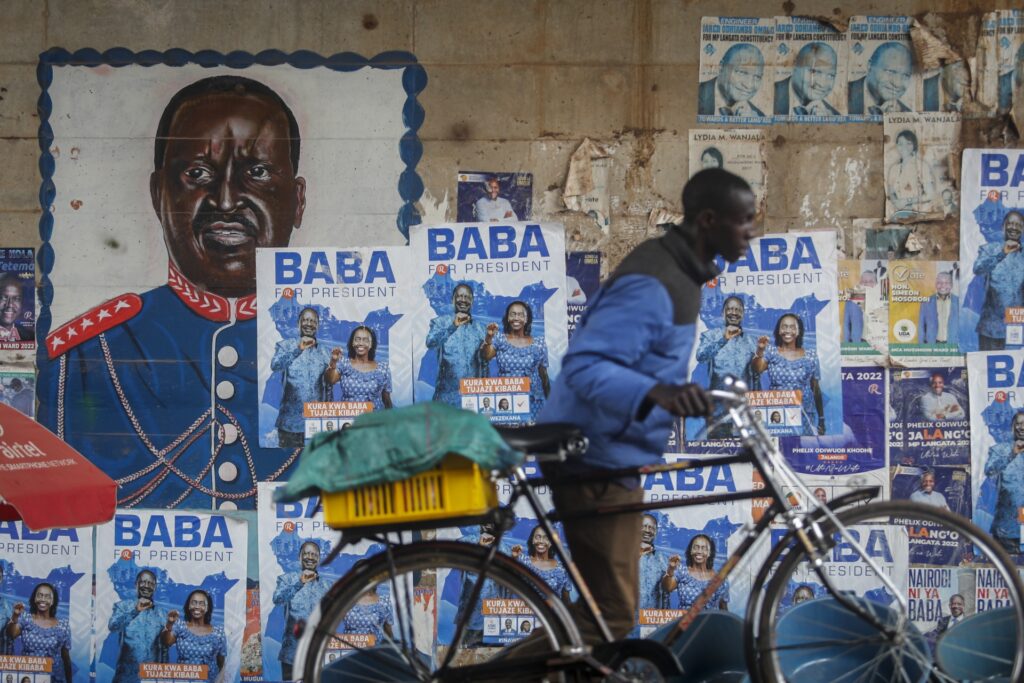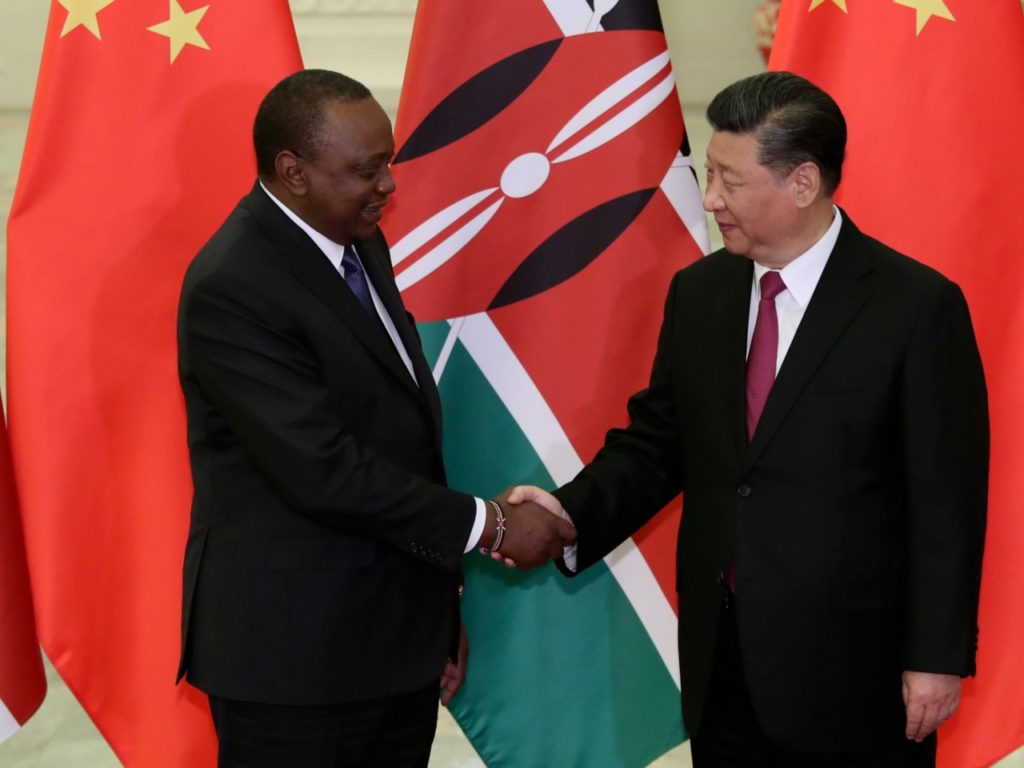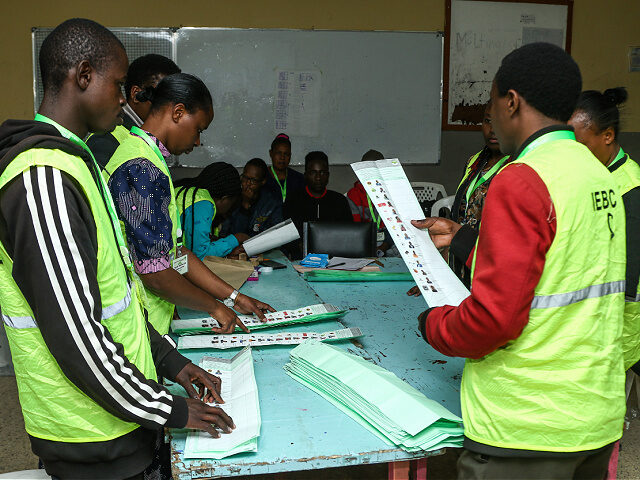Polls closed on Tuesday in Kenya’s presidential election, with two candidates emerging as likely frontrunners for the office — Raila Odinga and William Ruto — Kenya’s Capital FM news website reported, noting votes were still being tabulated at press time and no clear winner had yet been declared.
“Former prime minister and veteran politician Raila Odinga of the Azimio la Umoja coalition is neck-and-neck in polls in the race for the presidency against William Ruto of United Democratic Alliance, the Deputy Vice President [of Kenya],” Radio France Internationale (RFI) observed on August 9.
Odinga, 77, ran for the Kenyan presidency for the fifth time on Tuesday. The opposition leader cast his vote on August 9 in Kibera, which is a region outside of Kenya’s national capital, Nairobi, that is considered the largest slum in Africa.
“‘Baba! Baba!’ yelled young men who crushed around Mr. Odinga’s vehicle […]. They used his nickname, which means ‘father.’ The septuagenarian leader struggled to keep his feet as he was swept into a polling station,” the New York Times reported.

A man pushes a bicycle past campaign posters for Kenyan presidential candidate Raila Odinga, referred to affectionately as “Baba”, the Swahili word for “father”, and his running mate Martha Karua, in the low-income Kibera neighborhood of Nairobi, Kenya Friday, July 29, 2022. (AP Photo/Brian Inganga)
The newspaper, which had reporters on the ground in Nairobi that day, described Odinga’s younger rival, Ruto, as a “self-declared champion of Kenya’s ‘hustler nation’ — its frustrated youth.”
Ruto, 55, was one of the first people to cast his vote in Kenya’s presidential election after polls opened at 6:00 a.m. on Tuesday, according to Capital FM.
“It is upon all of us to respect the choice of Kenyans and I look forward to a victorious day,” Ruto told a crowd gathered outside a primary school in his home region of Sugoi, a rural area 215 miles northwest of Nairobi, shortly after voting.
Kenyan citizens headed to the polls nationwide on August 9 not only to select a new president but also to vote for fresh parliamentarians and local leaders. Kenya’s electoral commission estimated voter turnout in the national election at 60 percent of the nation’s 22 million voters.
The commission continued to receive unofficial results from the vote late on Tuesday as they became available. The state body posted its evolving polling station tallies on its official website for public review. The site showed that 87.55 percent of 46,229 polling stations nationwide had submitted their results electronically at press time on Tuesday. Commission staff were expected to verify the electronically submitted votes against original paper versions from Tuesday night as part of an effort that typically lasts for a few days.
A winning candidate in Kenya’s presidential election needs more than 50 percent of the vote to secure a victory, in addition to 25 percent of the vote in 24 of the nation’s 47 counties. If a candidate fails to meet this standard, Nairobi will schedule a runoff election within 30 days.
Kenya’s departing government, led by current President Uhuru Kenyatta, has left whoever wins Tuesday’s election with huge amounts of government debt, much of which is owed to China. Nairobi is a member of Beijing’s Belt and Road Initiative (BRI), which sees China’s government finance infrastructure projects in developing or lower-income countries. Observers have criticized BRI loans for their tendency to push already weak economies into foreign debt. The situation often leaves governments vulnerable to both financial and political exploitation by China’s ruling Communist Party.

Kenyan President Uhuru Kenyatta shakes hands with Chinese President Xi Jinping before the meeting at the Great Hall of People in Beijing, China, on April 25, 2019. (Photo by Kenzaburo Fukuhara/Kyodo News – Pool/Getty Images)
Voice of America (VOA) highlighted Odinga and Ruto’s respective stances on the Kenya-China relationship on July 28, writing:
[T]he pro-China policies of current President Uhuru Kenyatta – with whom Ruto has fallen out – now mean Kenya now owes China billions of dollars.
Ruto said he would cut government borrowing and promised to make public opaque contracts with China — something some Kenyan activists have even gone to court over. In contrast, Ruto’s opposition rival Raila Odinga — who has come up short in four previous presidential bids and is now backed by his former nemesis, Kenyatta — has been less strident on China.
Odinga has noted that Western nations were in Africa before the Chinese, who simply filled a need for infrastructure development, and said working with Beijing does not mean having to exclude other countries. He said recently he would renegotiate terms for the debt.
VOA described Ruto as “a former chicken-seller who styles himself as a champion of the poor.”
“Chinese nationals are roasting maize and selling mobile phones. We will deport all of them,” Agence France-Presse quoted Ruto as saying at an economic forum in June.

COMMENTS
Please let us know if you're having issues with commenting.